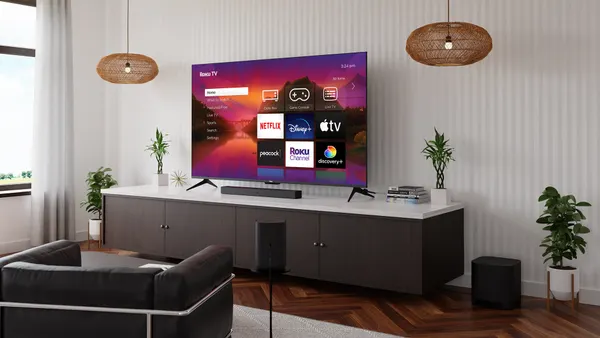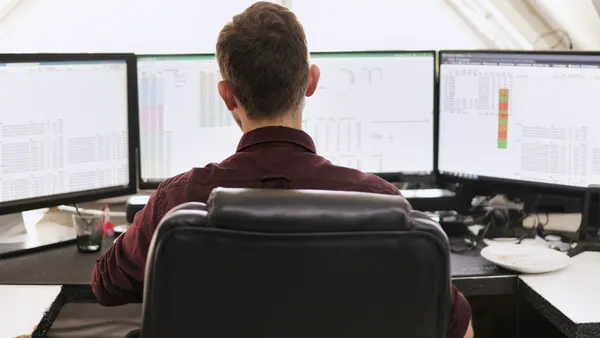Dive Brief:
- Domino's Pizza and Ford Motor Company have teamed up to better understand the role self-driving vehicles can play in pizza delivery, according to a press release. Initial tests are investigating customer reactions to interacting with an autonomous vehicle as part of the delivery experience.
- The tests will be conducted over the next several weeks in Ann Arbor, MI, with randomly selected Domino's customers given the opportunity to have their order delivered by a Ford Fusion Hybrid Autonomous Research Vehicle. The car will actually be manually driven by a Ford safety engineer and staffed with researchers. The customer will be able to track the delivery car via GPS and an upgraded version of Domino's Tracker, along with through text messages as the car arrives and guides them on how to get their pizza. A unique code will unlock a Domino's Heatwave Compartment inside the delivery car.
- The research intends to benefit both companies, as Domino's has been watching the evolution of self-driving cars with interest, according to Patrick Doyle, Domino's president and CEO. Ford is in the process of building out its autonomous vehicle business with production planned for 2021, and the research will help the automaker ensure the tech's applications enhance the customer experience.
Dive Insight:
The partnership between Domino's and Ford shows two major brands working together to uncover insights into a technology that could change the way both of their businesses operate in the near future. Domino's, which has been a pioneer in pizza delivery from its inception, has recently been active in probing alternative delivery vehicle options, including aerial drones and ground-based wheeled robots.
Self-driving cars are an obvious extension of that interest, and also one that might see more traction given that drones have limited commercial airspace under current government regulations. Ford, for its part, is eager to become the de-facto leader among the major U.S. automakers when it comes to supplying self-driving cars at scale. In May, in a sudden executive shakeup, the company replaced then-CEO Mark Fields with the head of its driverless division Jim Hackett to sharpen that strategy. Back in February, the brand also announced a $1 billion investment in the artificial intelligence company Argo AI to bring its AI robotics experience and software into the autonomous vehicle program.
As self-driving cars push past their experimental phase and overcome regulatory hurdles, a wide range of business and omnichannel shipping and marketing options will become clear. Delivery services and getting people from point A to point B are two obvious use cases, but the ability to market to drivers who are actually doing less driving and therefore are at less risk of becoming distracted presents a major opportunity.











